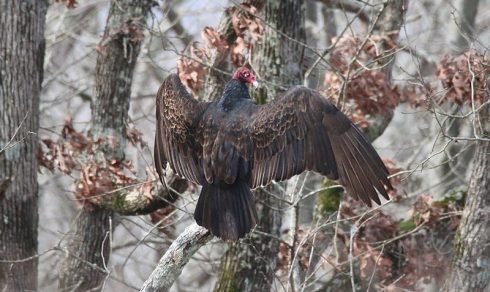
Turkey vultures are not your ordinary birds. They have a level of intelligence that allows them to thrive in various environments. Their ability to locate food, adapt to changing conditions, and communicate with each other hints at a complex social structure and notable cognitive skills. So, let’s dive deeper into the fascinating world of turkey vultures and explore just how smart these birds really are.
What Makes Turkey Vultures Unique?
When you think of vultures, the first image that comes to mind might be one of scavenging or feeding on carrion. However, turkey vultures also play a crucial role in their ecosystems. Their **keen sense of smell**, which is unusual for birds, allows them to locate decaying animals from great distances. This is not just a cool trick—it’s a critical survival skill that showcases their intelligence.
Unlike many birds that rely primarily on eyesight to find food, turkey vultures can detect the scent of gases emitted by dead animals. This unique capability means they can find meals that other animals might miss, making them efficient at their job. You might be wondering how this ties into their intelligence. Well, being able to effectively locate food indicates a level of cognitive mapping and awareness of their surroundings.
Additionally, turkey vultures have a rather sophisticated way of communicating with one another. They use a variety of calls and body language to convey messages about food sources or potential threats. This ability to signal to one another is another layer of complexity that speaks to their cognitive skills.
Social Behavior and Learning
Turkey vultures are social creatures who often gather in groups, especially when feeding. Observing their social structures reveals more about their cognitive abilities. These birds learn from one another, which is a hallmark of intelligent species. When one turkey vulture finds food, the others often follow, leveraging the discovery of a group member.
You might see them circling around a carcass, establishing a hierarchy based on size or age. Young vultures learn from older ones, picking up on strategies for finding food and avoiding dangers. This social learning is akin to how humans might learn through observation and experience.
Interestingly, these birds also exhibit a form of problem-solving. For instance, if a carcass is hard to access, turkey vultures can strategize and work together to overcome obstacles. That level of cooperation indicates a level of intelligence that goes beyond mere instinct.
Adaptability: The Key to Survival
When it comes to survival, adaptability is crucial. Turkey vultures have shown remarkable resilience in various environments, whether they’re found in forests, savannas, or even urban areas. Their ability to adapt is a testament to their intelligence.
For instance, if their typical food sources dwindle, they can shift their habits and forage in different locations. They adjust to seasonal changes, migrating as needed to stay in areas with ample food. This adaptability shows not just instinct but an intelligent response to environmental challenges.
Moreover, their ability to recognize different habitats and understand which areas may provide food also speaks to their cognitive skills. They can assess their surroundings and make informed decisions about where to hunt, just like a smart shopper picking the best store for groceries.
Problem-Solving Skills
Let’s take a closer look at the problem-solving abilities of turkey vultures. Imagine a scenario where they encounter a tricky food source, like a carcass that’s stuck in a tight spot. Instead of giving up, turkey vultures can use their intelligence to find alternative methods to access the food.
Studies have shown that they can learn from past experiences. If they encounter a barrier one time, they are likely to remember it and find a different route the next time. This ability to learn from experiences is a clear indicator of cognitive function.
Additionally, they can adapt their feeding habits based on what they’ve learned. For example, if they find that certain types of animals are easier to scavenge than others, they’ll shift their focus accordingly. This flexibility in behavior showcases an impressive level of intelligence.
The Role of Turkey Vultures in the Ecosystem
Turkey vultures aren’t just smart; they’re also vital for maintaining the health of their ecosystems. They help control the spread of disease by consuming dead and decaying animals, effectively cleaning up the environment. This scavenging behavior prevents the buildup of carrion, which can attract other pests and lead to health issues in wildlife and humans alike.
By eating decomposing animals, turkey vultures contribute to nutrient cycling in the ecosystem. When they consume carrion, they help break down organic matter, returning important nutrients back into the soil. This role underscores how their intelligence and behavior are intricately tied to their ecological importance.
In a way, you can think of turkey vultures as nature’s recyclers. Their smart scavenging not only helps them survive but also plays a crucial role in keeping the environment clean and balanced.
So, just how smart is a turkey vulture? Honestly, they’re smarter than many people give them credit for. Their unique cognitive abilities, problem-solving skills, and social behavior paint a picture of a bird that’s not just surviving but thriving. They adapt to their environments, learn from each other, and contribute significantly to their ecosystems.
Next time you see a turkey vulture soaring overhead, remember there’s a lot more going on in its mind than meets the eye. These birds are remarkable examples of how intelligence can take many forms in the animal kingdom. So, whether you’re out for a hike or simply enjoying nature, take a moment to appreciate the intelligence of these scavengers.
